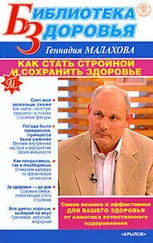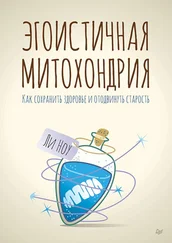Reiche, E. M. V. et al. ‘Stress, Depression, the Immune System and Cancer.’ Lancet Oncol (2004): 5: 617–625.
Jeferies, W. M. Safe Uses of Cortisol. Charles C. Thomas Pub Ltd, 3rd Ed (2004), pp. 3–9.
Hench, P. S. et al. ‘The Effect of a Hormone of the Adrenal Cortex on Rheumatoid Arthritis.’ Preliminary Report. Proc Staf Meet, Mayo Clinic (1949): 24: 181–197.
Jeferies, W. M. Safe Uses of Cortisol. Charles C. Thomas Pub Ltd, 3rd Ed (2004), pp. 3–9.
Jeferies, W. M. ‘Low-Dosage Glucocorticoid Therapy.’ Arch Intern Med (1967): 119: 265–278.
Steptoe, A, et al. ‘Depression and Elevated Cortisol.’ Am J Epidemiol (2008): 167 (1): 96–102.
Lupien, S. et al. ‘The Douglas Hospital Longitudinal Study of Normal and Pathological Ageing.’ J Psych of Neuroscience (2005): 30: 328–334.
Swaab, D. F. et al. ‘Elevated Cortisol in Rats Induces Neuronal Damage.’ Ageing Res Rev (2005): 4 (2): 141–194.
Stenius, F. et al. ‘Salivary Cortisol Levels and Allergy in Children: the ALADDIN Birth Cohort.’ J Clin Immune (2011).
Hedman, M. et al. ‘Low Blood and Synovial Fluid Levels of Conjugated Steroids in Rheumatoid Arthritis.’ Clin Exp Rheumatol (1992) 10: 25–30.
Strickland, P. et al. ‘A Comparison of Salivary Cortisol in Chronic Fatigue Syndrome, Community Depression and Healthy Controls.’ Journal of Af ective Disorders (1998): 47: 191–194.
Dunkelmann, S. S. et al. ‘Cortisol Metabolism in Obesity.’ J Clin Endocrinol Metab (1964): 24: 832–841.
Szafarczyk, A. et al. ‘Further Evidence for a Central Stimulatory Action of Catecholamines on Adrenocorticotropin Release in the Rat.’ Endocrinology (1987): 121 (3): 121.
Figueiro, M. and Rea, M. S. ‘The Effects of Red and Blue Light on Circadian Variations in Cortisol, Alpha Amylase, and Melatonin.’ International Journal of Endocrinology (2010): ID 829351.
Jung, H. J. et al. ‘Effect of Testosterone Replacement Therapy on Cognitive Performance and Depression in Men with Testosterone Deficiency Syndrome.’ World J Men’s Health (2016): 34: 194–199.
Arlt, W. et al. ‘DHEA replacement in women with adrenal insui ciency – pharmacokinetics, bioconversion and clinical effects on well-being, sexuality and cognition.’ Endocrine Research (2000): 26: 505–511. URL: http://www.tandfonline.com/doi/abs/10.3109/07435800009048561.
Sarrel, P. M. et al. ‘The mortality toll of oestrogen avoidance: an analysis of excessive deaths among hysterectomized women aged 50 to 59 years.’ Am J Public Health (2013): 103: 1583–1588.
Basaria, S. et al. ‘Adverse events associated with testosterone administration.’ N Engl J Med (2010): 363 (2): 109–122.
Levine, H. et al. ‘Temporal Trends in Sperm Count: A Systematic Review and Meta-Regression Analysis.’ Hum Reprod Update (2017): 1–14.
‘Ageing and health.’ World Health Organization. http://www.who.int/mediacentre/factsheets/fs404/en/.
Vermeulen, A. et al. ‘The apparent free testosterone concentration: An index of androgenicity.’ J Clin Endocrinol Metab (1971): 33: 759–767.
Kaufman, J. M. et al. ‘Androgens in male senescence.’ In Nieschlag, E., Behre, H. M. eds. Testosterone action, deficiency, substitution. Berlin, Springer-verlag (1998): 437–471. Liefke, E. et al. ‘Age-related changes of serum sex hormones, insulin-like growth factor-1 and SHBG levels in men: cross-sectional data from a healthy male cohort.’ Clin Endocrinol (Oxford) (2000): 53: 689–695.
Stellato, R. K. et al. ‘Testosterone, SHBG and the development of type-2 diabetes in middle-aged men: prospective results from the Massachusetts Male Ageing Study.’ Diabetes Care (2000): 23: 490–494.
Mof at, S. D. et al. ‘Longitudinal assessment of serum free testosterone concentration predicts memory performance and cognitive status in elderly men.’ J Clin Endocrinol Metab (2002): 87: 5001–5193.
Mof at, S. D. et al. ‘Free testosterone and risk for Alzheimer’s disease in older men.’ Neurology (2004): 62: 188–193. Braga-Basaria, M. et al. ‘Metabolic syndrome in med with prostate cancer undergoing long-term androgen deprivation therapy.’ J Clin Oncol (2006): 24: 3979–3983.
Selvin, E. et al. ‘Androgens and diabetes in men: results from the third National Health and Nutrition Examination Survey (NAHANES III).’ Diabetes Care (2007): 30: 234–238.
Rosano, G. M. et al. ‘Low testosterone levels are associated with coronary artery disease in male patients with angina.’ Int J Impot Res (2007): 19: 176–182.
Khaw, K. T. et al. ‘Endogenous testosterone and mortality due to all causes, cardiovascular disease and cancer in men. EPIC-Norfolk prospective population study.’ Circulation (2007): 116: 2694–2701.
Malkin, C. J. et al. ‘The effect of testosterone replacement on endogenous infl ammatory cytokines and lipid profiles in hypogonadal men.’ J Clin Endocrinol Metab (2004): 89: 3313–3318.
Oppenheim, D. S. et al. ‘Elevated serum lipids in hypogonadal men with and without hyperprolactinaemia.’ Ann Intern Med (1989): 111: 288–292.
Hanke, H. et al. ‘Effect of testosterone on plaque development and androgen receptor expression in the arterial vessel wall.’ Circulation (2001): 103: 1382–1385.
Malkin, C. J. et al. ‘The effect of testosterone replacement on endogenous infl ammatory cytokines and lipid profiles in hypogonadal men.’ J Clin Endocrinol Metab (2004): 89: 3313–3318.
Rubinow, K. B. et al. ‘Testosterone replacement in hypogonadal men alters the HDL proteome but not HDL cholesterol el ux capacity.’ J Lipid Res (2012): 53: 1376–1383. Nettleship, J. E. et al. ‘Physiological testosterone replacement therapy attenuates fatty streak formation and improves high density lipoprotein cholesterol in the Tfm mouse.’ Circulation (2007): 116: 2427–2434.
Hanke, H. et al. ‘Effect of testosterone on plaque development and androgen receptor expression in the arterial vessel wall.’ Circulation (2001): 103: 1382–1385.
Hackett, G. et al. ‘Testosterone replacement therapy improves metabolic parameters in hypogonadal men with type 2 diabetes but not in men with coexisting depression: the BLAST study.’ J Sex Med (2014): 11: 840–856.
Dhinsa, S. et al. ‘Insulin Resistance and Infl ammation in Hypogonadotropic Hypogonadism and Their Reduction After Testosterone Replacement in Men With Type 2 Diabetes.’ Diabetes Care (2016): 39: 82–91.
Cherrier, M. M. et al. ‘Testosterone improves spatial memory in men with Alzheimer’s disease and mild cognitive impairment.’ Neurology (2005): 64: http://n.neurology.org/content/64/12/2063.full.
Читать дальше
Конец ознакомительного отрывка
Купить книгу








![Дипак Чопра - Сила внутри тебя [Как «перезагрузить» свою иммунную систему и сохранить здоровье на всю жизнь] [litres]](/books/405248/dipak-chopra-sila-vnutri-tebya-kak-perezagruzit-thumb.webp)



